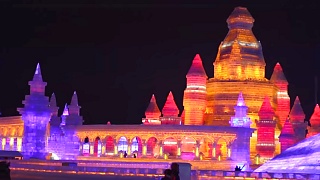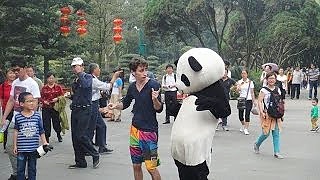
|
With China Walking Tour ...
Visitor Guide to MingShui Ancient Town, ShanDong Province
Overview
MingShui Ancient Town, located in the city of JiNan in ShanDong Province, is a well-preserved historical town with a rich cultural heritage. Known for its traditional architecture, charming streets, and historical sites, MingShui offers a fascinating glimpse into the life and culture of ancient China.
Getting There
By Air: The nearest airport is JiNan Yaoqiang International Airport (TNA), located about 50 kilometers from MingShui. From the airport, you can take a taxi or a shuttle bus to MingShui.
By Train: JiNan Railway Station and JiNan East Railway Station offer convenient connections to MingShui. From these stations, you can take a local bus or taxi to reach MingShui.
By Bus: Long-distance buses from nearby cities such as JiNan and Tai'an provide direct routes to MingShui. The main bus station in MingShui is MingShui Long-Distance Bus Station.
Getting Around
Walking: MingShui Ancient Town is best explored on foot, allowing you to fully appreciate the historical architecture and charming streets.
Biking: Renting a bicycle is a great way to explore the surrounding areas and nearby attractions at your own pace.
Local Transport: Taxis and local buses are available for traveling to and from different parts of MingShui and JiNan.
Main Attractions
MingShui Old Street
MingShui Old Street is the heart of the ancient town, lined with traditional buildings, shops, and tea houses. Strolling along this street, you can experience the charm of old China and discover local handicrafts, snacks, and souvenirs.
Yunmen Temple
This historic Buddhist temple is a significant cultural site in MingShui. The temple features ancient architecture, beautiful gardens, and intricate statues, making it a peaceful place for reflection and exploration.
MingShui Ancient City Wall
The ancient city wall of MingShui is a testament to the town's historical importance. Visitors can walk along the wall and enjoy panoramic views of the town and its surroundings.
Shuiyue Pavilion
Shuiyue Pavilion is a beautiful structure located near a serene pond, offering a picturesque setting for photography and relaxation. The pavilion is a great spot to enjoy the tranquility of the town.
Traditional Folk Houses
Scattered throughout MingShui are traditional folk houses that showcase the architectural styles and living conditions of ancient Chinese families. These houses provide a fascinating look into the past.
Local Cuisine
MingShui's cuisine is characterized by its use of fresh ingredients and traditional cooking methods. Here are some must-try dishes:
MingShui Tofu: This locally made tofu is known for its delicate texture and rich flavor, often served with a variety of sauces and garnishes.
Shandong Pancakes: A popular local snack, these thin pancakes are typically filled with vegetables, meat, or seafood.
Local Noodles: Hand-pulled noodles served with a variety of toppings, including vegetables, meat, and savory broths.
Traditional Pastries: Try the local pastries, which are often filled with sweet or savory ingredients and baked to perfection.
Shopping
Local Handicrafts: MingShui is known for its traditional handicrafts, including pottery, paper-cutting, and embroidery. These items make for unique souvenirs.
Antique Shops: Explore local antique shops for historical artifacts, vintage items, and collectibles.
Local Markets: Purchase fresh produce, local snacks, and traditional items at the town's bustling markets.
Accommodation
Traditional Inns: For an authentic experience, consider staying in a traditional inn or guesthouse, which often feature historical architecture and local decor.
Mid-Range Hotels: Options such as the MingShui Hotel and local boutique hotels provide comfortable accommodations at reasonable prices.
Budget Hotels: For budget travelers, hostels and budget hotels in and around MingShui offer affordable and convenient lodging.
Tips for Visitors
Best Time to Visit: The best times to visit MingShui are spring (April to June) and autumn (September to November) when the weather is mild and pleasant.
Clothing: Wear comfortable walking shoes and dress in layers to accommodate changing temperatures. An umbrella or raincoat is useful during the rainy season.
Respect Local Customs: Be respectful of local customs and traditions. Dress modestly and be mindful of local etiquette, especially when visiting historical and cultural sites.
Language: While Mandarin is widely spoken, learning a few basic phrases or using a translation app can be very helpful.
Plan Your Visit: MingShui is best explored at a leisurely pace. Take your time to wander through the streets, visit local shops, and enjoy the tranquil atmosphere.
Conclusion
MingShui Ancient Town, with its rich history, traditional architecture, and serene environment, offers a unique and memorable travel experience. Whether you're exploring ancient streets, savoring local cuisine, or visiting historical sites, MingShui provides an unforgettable glimpse into the past. Plan your visit carefully to make the most of your trip to this charming town in ShanDong Province.
|
 Typhoon time-lapse, Hong Kong 香港
Typhoon time-lapse, Hong Kong 香港





